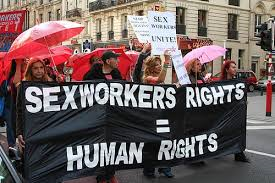
Double standards on sex work in the EU: The ‘Nordic model’ criminalizes everyone.
The European Parliament (EP) recently voted in favor of a resolution that supports the so-called ‘Nordic model’ of sex work. With this decision from the 26th of February, the EP backs a report titled ‘Sexual exploitation and prostitution and its impact on gender equality’ that was proposed by Labour MEP for London Mary Honeyball. The purpose of the report was to send a “strong signal to domestic governments”. The document states that criminalizing the buying of sex while making selling of it exempt from punishment (as is currently the case in Sweden, Iceland and Norway), will decrease the demand for sex work. This is intended to reduce human trafficking for the purpose of sexual exploitation. In the EP’s report, the ‘Nordic Model’ is presented as a policy approach that aims to protect sex workers.
However, the Nordic approach does not improve the situation of sex workers. Instead, it indirectly leads to a criminalization of everyone involved in sex work – obviously including sex workers themselves. Criminalizing sex work increases the vulnerability of sex workers who chose this work because of economic necessity, strict immigration laws or personal preference. Moreover, it does not help those who are victims of human trafficking and have been forced into prostitution either, but instead decreases their visibility. Often portrayed as dominating the sex industry, the scale of the victims of human trafficking represents a minority of sex workers in the UK: less than 10% of female sex workers (2600 out of 30000) working indoors have been trafficked according to the Association of Chief Police Officers’ 2010 report.










